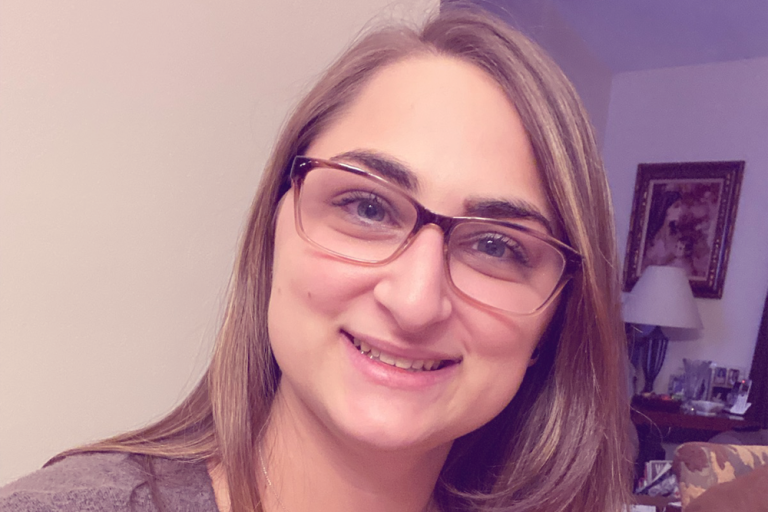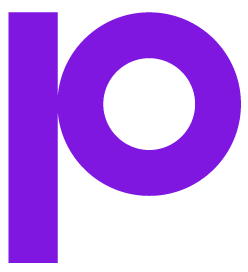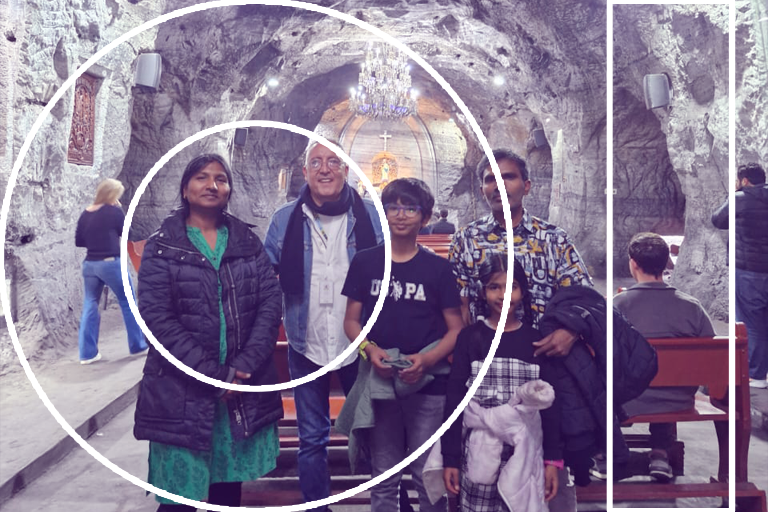
Precisely Women in Techology: Meet Samantha Kastin

At Precisely, diversity is an inherent aspect of the company culture. Celebrating each other’s differences makes the team stronger as a whole. The Precisely Women in Technology (PWIT) program is a designated space for women in the company to learn from one another, support each other, provide career-growth advice, and share opportunities. Each month, a member of the PWIT group is featured to learn more about their experience as a woman in technology at Precisely. Continue reading to learn more about Samantha Kastin, Software Engineer, and her career journey.
Why did you choose to pursue a career in technology?
My interests have always been varied and while I have always loved creative endeavors – like learning languages – I wanted to find a career that also provided practicality and longevity. When I started my freshman year of college, my dad suggested I try out a computer science course to see if I liked it. I didn’t know anything about programming or computer science before that, and math was my least favorite subject, but taking his advice was the best thing I could have done. Immediately, I found that I really enjoyed programming for a few reasons:
- learning a programming language was like learning any other traditional language, like Spanish or Japanese, because the concepts of syntax and grammar are transferrable;
- programming involves creation. When you write a program, you create something from nothing, and the creation of a program is satisfying in a similar way to how creating music, painting, or writing is satisfying; and,
- programming is all about creative problem solving. These problems are not always easy or simple to solve, but part of the fun is in experimenting and tinkering with ideas until you get the desired outcomes. The main takeaway here is that there are a lot of misconceptions about what a career in tech entails, but it’s more accessible and more creative than people realize.
Who has been your greatest professional mentor? What’s one thing you have learned from them?
I would say that Sean McCoy, Senior Technology Archiect – Distinguished Engineer, has been my role model, and Chris Dunnigan, VP, Customer Support Operations, has been my greatest advocate. My entire career has been here at Precisely, starting in 2017 when it was Syncsort. Chris was the one who hired me, and he was the one who took that initial chance on me. Something he told me that I’ll never forget is that part of the reason he decided to hire me was that I was curious. I didn’t realize how true that was at the time, until I started exercising that skill heavily and being incredibly persistent when it came to working to understand the problems I was faced with and finding solutions. Since then, he has advocated for me in my career, and been an incredible supporting force. Through that, I’ve learned the value of having someone advocate for you, and if (or when!) I am in a position to advocate for others, I know that I will not shy away from speaking up for the people I believe in.
As for Sean – when I first started, I was on the DMX (now Connect ETL) support team, and I noticed that Sean was always the one with all the answers, and everyone from across the entire company would go to him for advice. I immediately decided that I wanted to be like that too, and I spent the next few years making that happen and working my way up to Sean’s level. I looked up to Sean as someone I wanted to emulate, but also someone that I wanted to collaborate with on equal ground. I made that happen by putting 150% into anything I did. I would dive headfirst into any support issue and learn whatever needed to be learned to deeply understand a problem, subsequently solve it, and then communicate the solution to the customer in an accessible way. However, even throughout the process of putting in the hard work and learning things for myself, it is important to note that I still learned a lot from Sean by knowing when to ask for help and learning from the years of experience he had over me. But it was more than the individual desire to build up credibility and make a professional reputation for myself – I believe that collaborating with others is what allows the best ideas to flourish. For example, Sean and I would often bounce ideas off one another, and putting our minds together is what would sometimes give one of us the idea or missing piece needed to figure out a problem.
Careers and Culture
We help market leaders make better decisions and build new possibilities. Want to join the team? Find out about working with us and our current openings.
As a woman, what challenges have you faced in the technology industry? How have you overcome them?
To be honest, I don’t feel I have really faced challenges in my career due to being a woman – that being said, I have heard several times over the years that this was going to be the case. This may still be happening for many women, but from what I have experienced personally, it seems like women are more encouraged and empowered than ever.
I have been in many situations where I was the only woman present. There were very few other women in my classes in college, and I have often been in meetings (including meetings with customers) in my roles on the Connect support team as well as the Connect R&D team where I was the only woman. However, I feel that most people I have encountered are respectful to everyone, regardless of who they are or what their demographic is, and if someone has something to say, that person is completely welcome to speak.
Aside from perhaps being lucky when it comes to the open-mindedness of the people I’ve worked with, there are a few factors related to the way I conduct myself and my outlook on life that I feel contribute to my success in this area:
- The energy you put out into the world is often reciprocated. If you level with people, and you are friendly, thoughtful, intelligent, empathetic, etc., people generally see that, respect it, and give that energy back to you.
- However, some people are tougher to work with. To manage difficult personalities, or people who are in high-stress situations and may be taking their stress out on you, I find it’s best to lead with understanding. I’m the kind of person who is assertive yet diplomatic. I always try to speak in such a way that validates people’s feelings and perspectives, while still being firm and assertive in voicing the things I have to say. In my experience, when you make people feel heard and understood, they become more receptive to what you have to say.
- Even if people have started out being skeptical of the things I was saying or the advice I was giving (possibly because I’m a woman, but no one has ever said as much), I quickly proved that the things I say are insightful, and my advice can be trusted. Once that happens, people’s attitudes toward you improve. In order to build up a reputation like this, it helps to be diligent and comprehensive with research, and learn how to synthesize information from various sources.
- I feel it is important to be brave and trust yourself. When I first started getting invited to meetings where I had an opportunity to be influential and share my perspective, I was a bit hesitant to start speaking up, but only because I was not sure if I had enough context to say something intelligent. As I started attending these meetings more regularly, I felt more confident that I had a good grasp on what was happening, and therefore I was able to trust that when I spoke, it would add value to the conversation. You can’t establish yourself as someone who is worthy of being heard if you are too afraid to speak up and share your perspective.
What’s the best advice you’ve ever been given? How do you apply it to your personal and professional life?
I don’t think I can pinpoint a specific person or piece of media that led me to this ideology, but I believe that if you have an optimistic and determined attitude, and a good work ethic, you can do anything you set your mind to, and I apply this mindset in all areas of my life. To give an example from my professional life – customers would raise support cases where the use of third-party software was heavily involved, and it was unclear whether our product had a problem or if it was the third-party software. Even when they were using a technology I was unfamiliar with, I would never say to myself that I can’t figure it out because I’m lacking knowledge about X. If the problem at hand required me to learn and test with a new technology, I would learn it. To give an example from my personal life, I recently thought 2 songs sounded similar, so to prove it to someone else who didn’t hear it, I downloaded a music editing software and taught myself how to mash up the songs. I didn’t say “I wish I knew how to create a music mashup” – I just learned how to do it. Whenever I want to produce a certain result, I learn what I need to learn to accomplish that goal. The belief that you can do anything you set your mind to takes you further than you ever thought you could go, because you are not imposing artificial limitations on yourself.
What’s one piece of advice you’d offer to younger women entering the industry?
Over the last 5 years, I have helped several friends move into tech careers after getting liberal arts degrees and feeling a bit lost and directionless career-wise. I have also advocated to any high schooler and college student I’ve talked to that they should at least minor in computer science. It’s incredibly marketable to have hard technical skills on your resume, and programming is such a versatile skill on top of that. In any field someone is interested in, the ability to automate tasks, develop apps for creative work, or use data analysis techniques to find meaning in data is a great supplement, and a huge asset in today’s world. I also like to emphasize that you don’t need to feel like you’re a science or math-oriented person to enjoy or be good at technical skills and the jobs that require them. It’s perfectly fine if you are the type of person who loves math and science, but the types of things a programmer can do these days is so varied that you don’t need to fit the stereotypical definition of a programmer to pursue a career in tech. It’s not always left brain vs. right brain, logic vs. art – it can be both.
Learn more about us on our Careers and Culture page.



